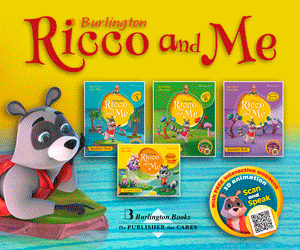Digital books offer one major advantage over print versions – they make it much harder to get away with producing tedious waffle.
Before you decided to click on the link that brought you here, was anything else vying for your attention? A shocking tale of celebrity indulgence? An amusing picture of a cat? Are you listening to music right now, or keeping a casual eye on email or Twitter updates?
Of course, BBC Future readers may not be sucked in so easily. But this kind of competition for attention has long been a staple of the “dumbing down” school of digital thought, which sees a surfeit of choices flattening culture into something close to its lowest common denominator.
The argument is a familiar one, and goes something like this: easy, inane and scandalous things tend to win the battle for our immediate attention. Thus, in the crowded and unfettered digital realm, difficult and excellent ideas are driven into retreat. And among these difficult, excellent things, “good” books come close to the top of most lists.
There is certainly something brutally Darwinian about the modern digital marketplace. Yet I wonder, especially when it comes to serious writing, whether this competition also brings something less dispiriting into play: a direct obligation towards your audience that was too often lacking in pre-digital times.
Take the process of publishing a traditional book of non-fiction: 250 pages of well-edited prose between hard covers, priced at between ten and twenty pounds, hoping for healthy sales off the back of wide reviews.
Making sure the book has an engaging central idea is crucial, both for attracting debate and readers. Often, this means basing the book on an article or “big idea” that has already found a large audience or felt particular timely. This in turn often leads to a book containing 50 pages of interesting prose, padded out with 200 further pages of less-than-thrilling examples, anecdotes and amplifications.
Buy an e-book through, say, a Kindle, and one of the first things you will notice is that the length of the text itself is nowhere to be seen. Unlike a hardback, an e-book doesn’t have to have 250 pages any more than it has to cost a set amount, or sit handsomely on your shelf. There are some great losses wrapped up in these facts. As far as actually writing a book goes, though, the digital format has one significant advantage over the physical: it is much harder to get away with producing boring waffle.
Take the purchasing procedure for most e-books. Unless an author is unimpeachably famous, or you are buying a sequel, the motto of most digital consumers is “try before you buy”.
Free samples are becoming as standard a part of all electronic booksellers’ operations as readers’ reviews and ratings. Gone is the marvellous serendipity of browsing the shelves of a bookshop. But going, too, is the likelihood of being seduced by a book’s cover, elegance of production, and titillating blurb.
In this sense, the digital playing field is far more level than the world of print. It asks us to judge an author by the words they write (or choose not to write); and by what other readers, rather than paid publicists, have said about them. There are even community e-book review sites popping up to alert about and discuss new releases – such as “Download the Universe”, a site recently launched by a group of A-list science writers.
When it comes to prose itself, this levelling is a paradoxically conservative pressure. For, while the realm of apps is steadily increasing everyone’s expectations of interactive media, it’s the most old-fashioned virtues that tend to bring the greatest rewards with words: force and clarity of style; hard-hitting themes; engaging plots and characters.
For some critics, this is precisely the apocalypse of mediocrity that doomsayers have spent the last few decades predicting. For others, though – and I number myself among them – it’s more of a wake-up-call than a last trumpet. The economics of traditional publishing may be in dire straits. But the incentive for writers themselves to be interesting – and to try to be interesting on every page – has never been sharper.
Shorn of its covers, even the word “book” is beginning to look a little shaky. Substantial, ambitious texts are one thing; but dressing them up as permanent, premium objects is quite another. Who’s to say that subscribing directly to your favourite author’s output is not a better bet than waiting for it to appear in hefty chunks; or that an audience should have no input into what gets written next, rather than simply waiting to be told?
Consider how digital media have already affected journalism. Economically, the results have often been disastrous; and the related cuts in resources have done great damage to journalism as an institution. Stylistically, though, the digital deluge has compelled the profession and its practitioners at the “quality” end of the market to shed a good deal of complacency, self-indulgence, and general lack of interest in their audience.
In any case, the competition on our screens is only going to get more intense. And when it comes to winning the next century of serious readers, there’s only one certainty: the moment someone can simply switch you off, being boring is the last thing you can afford.
bbc.com





